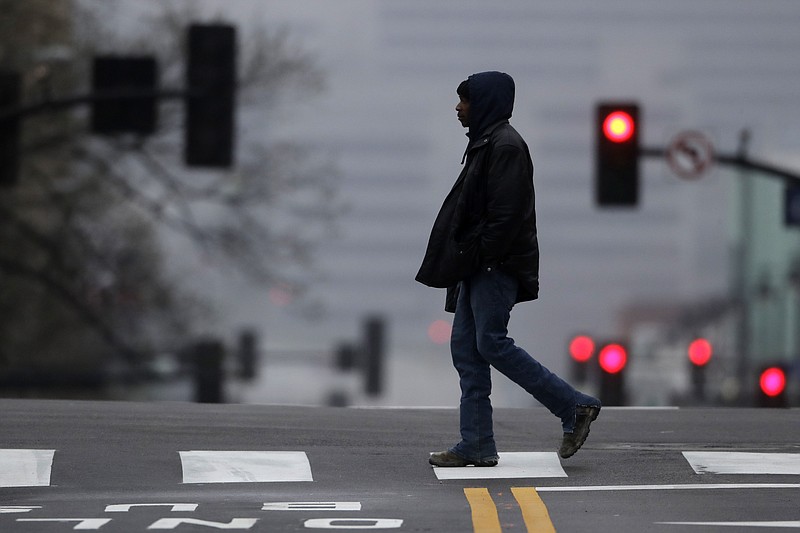[<a href="https://www.newstribune.com/news/health/" style="color:#33AEFF">access the News Tribune Health section</a>]
JEFFERSON CITY, Mo. (AP) - Missouri reported 10 more deaths from COVID-19 Sunday, even while a national database was reporting a higher number in the state.
The state said 34 people have died from the virus, an increase from 24 reported Saturday. A database operated by Johns Hopkins University has recorded 44 COVID-19 deaths in Missouri as of Sunday.
Missouri also reported 2,367 confirmed coronavius cases on Sunday, up 76 from the 2,291 reported Saturday.
The increases come as Missouri residents prepare to live under a statewide stay-at-home order, which requires them to stay home except for essential needs, such as buying groceries. The order also requires public schools to stay closed, bans visits to nursing homes, and limits the number of customers allowed in grocery stores and other essential businesses.
Gov. Mike Parson announced the order on Friday, and it was to take effect at 12:01 a.m. Monday. It is currently scheduled to expire on April 24.
The discrepancy in deaths between the state and Johns Hopkins could be because Missouri had not required that coronvirus deaths be reported within 24 hours until it changed that policy as of Sunday.
The Johns Hopkins data is updated in near-real time all day, using publicly available data from several sources that do not always agree, spokeswoman Jill Rosen said in an email. The more frequent updates often result in higher case numbers than those available from sources that don't update as frequently, such as state databases.
St. Louis County had the most deaths reported by the state, with 12. All but one death occurred in people between the age of 50 and 80 or over, state health officials said.
Most infected people develop mild or moderate symptoms that clear up within three weeks, such as fever and cough. But older adults and people with existing health problems are particularly susceptible to more severe illness, including pneumonia.
On Saturday, Parson said Missouri is looking for medical professionals who are not working to join a specialized Missouri Disaster Medical Assistance team, which would respond to critical medical emergencies.
At the same time, the Missouri National Guaurd and state and federal partners are evaluating about a dozen sites across the state that could be used for temporary medical facilities and patient care needs if necessary. The groups have visited facilities in St. Louis, Kansas City, Cape Girardeau, Columbia, Springfield and Joplin.
The Guard said it has also done "virtual" assessments of more than 100 other sites in the state that could be used if needed.

